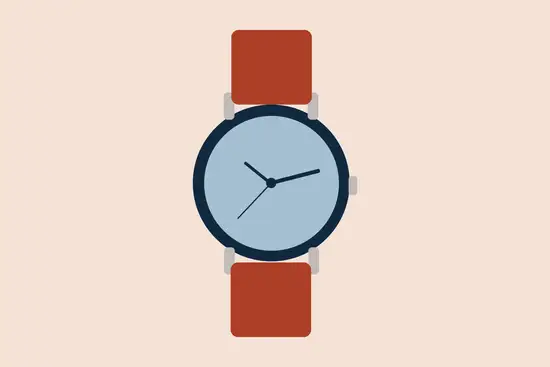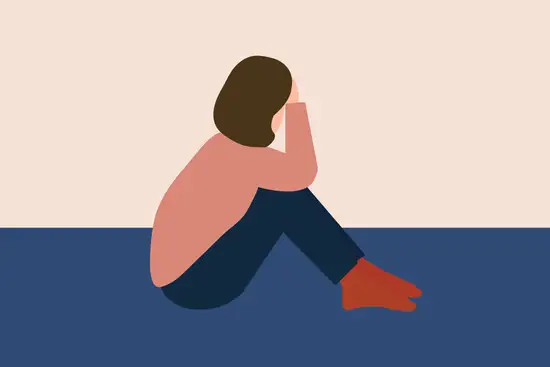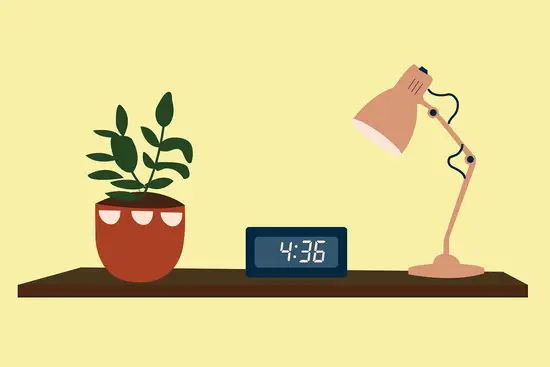Key points
Have you ever noticed that it’s so hard to get up when the mornings are dark but much easier to get out of bed at the start of a bright summery day? We’re going to take an in-depth look at dark mornings and we’ll cover:
- how our biology has a big impact on when we naturally want to rise in the morning
- how dark mornings can affect you emotionally
- simple steps you can take to make dark mornings much more bearable
- what to do if dark mornings are getting you down.
Don’t let dark mornings cast a shadow over your day
Getting out of bed when it’s still dark outside can be a real battle. Who can’t relate to the feeling of wanting to just turn over and go back to sleep when the alarm goes off on a dark, wintery morning?
So why exactly are dark mornings such a drag? And what can you do to make it easier to get out of bed on those days when the sun isn’t even up yet? We’re going to give you all the information you need to make sure dark mornings don’t become dark days.
We’ll start with looking at how our biology plays a big role in our dislike of dark mornings.
Are dark mornings affecting your sleep?
When you’re sleeping badly, getting up in the dark can be really difficult. But you don’t have to battle on until the lighter days reappear. Our expert team can help you identify the cause of your sleep problem and give you the lifelong skills to keep your sleep on track, whatever the season.
Join the thousands of people who’ve already achieved better sleep through our Sleep Transformation Programme.
- Proven to be more effective than sleeping pills
- Direct access to our expert sleep team
- Clinically validated and accredited by the NHS
- Tailored sleep improvement plan
Why it’s so difficult to get up when the mornings are dark
Humans are meant to be awake during the day and asleep at night. It’s the way we’ve been wired for thousands of years. Your body clock is governed by sunlight so, as far as your senses are concerned, sunlight is the signal to be awake and darkness is the signal to sleep.
But that begs the obvious question: if your brain associates darkness with sleep then how are you meant to get up when it’s so dark outside?
There’s no easy answer, but the evolutionary reason is that you’re simply not supposed to be awake in the dark.
Human eyesight is so poor that darkness has always been our enemy. Long before artificial lighting made our lives so much easier, we weren’t able to work, hunt or avoid predators after dark.
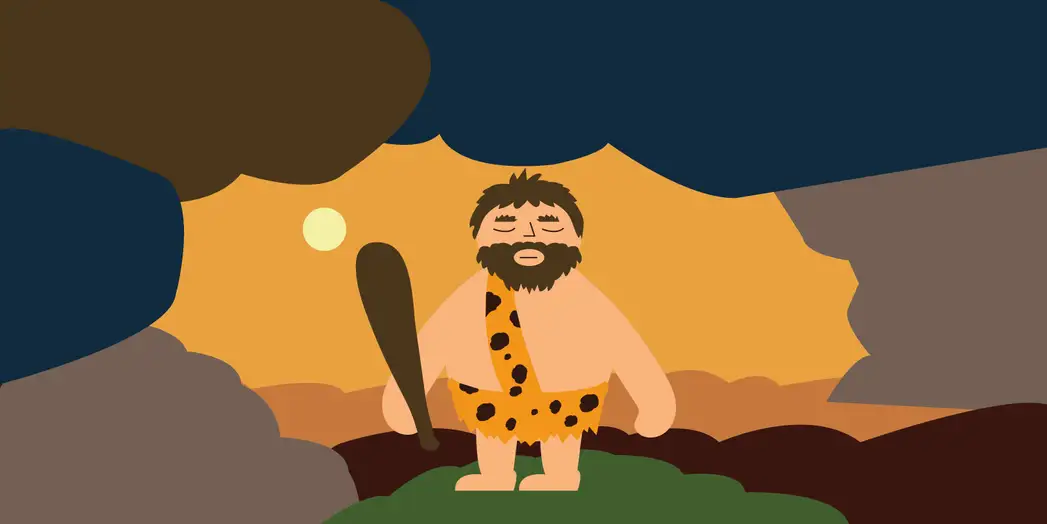
Our predecessors saw the sun setting and bunkered down. Finding somewhere safe and secure to sleep each night was the number one priority for our fearful forefathers.
So this gives us one reason why it’s so hard to get up on dark mornings: we’re fighting our natural instincts.
CAR responses
A second biological reason involves a process called the cortisol awakening response (CAR) and this plays a key role in our reaction to darker mornings. 1When you wake up, you experience a spike in levels of the hormone cortisol.
Cortisol is involved in controlling alertness as well as responses to stress. This increase in cortisol occurs approximately 30 minutes after you wake and helps you feel alert and ready to start the day.
Research shows that the CAR response is much more intense when you’re exposed to light.1 So in the bright summer months this response is much stronger. You’ll feel more awake and ready to tackle the day on a summer morn than at the start of a dark winter day.
Another study has shown that a higher level of cortisol when you wake may result in improved brain functions during the day.2 So when you wake up in darkness, the CAR response is lower and your brain function may suffer accordingly.
Melatonin is key to your sleep
Melatonin is a hormone that’s key for getting our bodies and minds ready for sleep. Our bodies start to produce melatonin in response to daylight fading and its production slowly rises throughout the night, peaking between 2-4am.
It’s the signal for the body to prepare for sleep and its production sets off a cascade of activities in the body that culminate in you feeling sleepy when you get into bed.
As soon as your eyes sense daylight in the morning, melatonin production is shut down and remains low until the light starts to fade again. So in summer, this is fine. You wake up, see the sunlight and your body stops making melatonin.
In the winter however, mornings are dark which means you’re forcing yourself to get up in the dark while melatonin is still being produced. So you’re more likely to wake up feeling sleepy and wanting to stay in bed on dark mornings.
Plus, days are shorter and darker so melatonin production begins early and we have naturally higher levels of melatonin in the winter months. Your body may be sending signals that it’s time to feel sleepy and unwind well before your working day is done.
So again, you’re fighting against biology. But fear not ― there’re some simple and sensible ways to work with the season to ensure you’re feeling awake and ready for the day, even in the dark winter months. So keep reading because we’ve got lots to share!
Seasonal affective disorder (SAD)
Many of us will feel a bit down about the darker days and not want to get up on cold winter mornings. But for some people these feelings go deeper and they can experience a seasonal depression during the darker months of the year.
This is known as seasonal affective disorder (SAD), which the NHS defines clearly and simply as:
a type of depression that comes and goes in a seasonal pattern.
The symptoms of SAD are similar to those of depression and include:
- persistent low mood
- feeling stressed and anxious
- low energy
- strong cravings for carbohydrates
- sleeping problems.3
Seasonal affective disorder is thought to affect as many as two million people in the UK each winter and 10 million people in the US.3 4
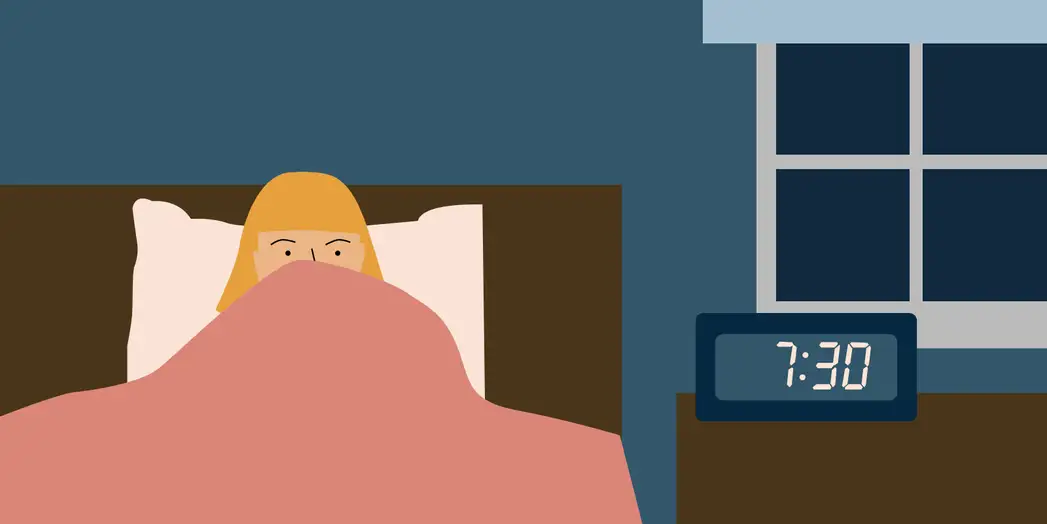
What causes SAD?
It’s been suggested that CAR responses, which we mentioned earlier, may contribute to the feelings of depression that affect some people during winter.
Research has found that people with SAD have a lower CAR response on dark winter mornings.5 In this study, participants with lower CAR responses reported greater levels of stress, anxiety and depression.
In contrast, another study found that brighter morning light reduces activation of the amygdala which is the part of the brain that’s responsible for processing fear and threats.6
So, it’s possible that dark mornings may increase the level of anxiety people experience during the day and a way to combat this is to get exposure to morning light.
The changes in levels of sunlight across the year have also been linked with changes in serotonin and dopamine levels, which are both important in regulating your mood as well as your sleep. This variability in levels reflects the pattern of seasonal depression.7
We also know that people with SAD may produce more melatonin than those without the disorder.6 For people with SAD, this excess of melatonin can make them feel sleepy and lacking in energy during their waking hours.
Sleep disruption is one of the most common symptoms of SAD and people most often report that they experience hypersomnia — a need or desire for increased length of sleep.8 People can experience as many as three extra hours of sleep at the weekends during winter.
SAD can cause you to spend longer in bed than usual without an increase in the amount of sleep you’re getting. This can lead to a feeling of insomnia. Approximately 25% of people with SAD experience insomnia — more than twice the level seen in the general population.

What should you do if you think you have SAD?
If you’re experiencing the symptoms of seasonal affective disorder, don’t hesitate to see your healthcare provider. There’s a range of treatment options available to you, such as:
- light therapy
- certain antidepressants and medications
- cognitive behavioural therapy.9
Importantly, don’t feel like you’re alone. Like we’ve mentioned above, millions of people experience SAD each year and it’s a very real and highly treatable disorder.
If SAD is interfering with your sleep, you’ll probably find that treating this depression helps to improve your sleep.
If you think you’re experiencing insomnia, our programme could be just what you need to get back to sleeping well. Answer a few short questions about your sleep problems and we’ll be able to advise you on the most suitable path to good sleep.
How to emerge from the shadow of darkness
Whether it just feels too cold to get out of bed or you’re asking yourself, ‘Why is it so dark this morning?’ and hoping your alarm’s somehow gone off too early… Dark mornings can be hard to deal with, especially when you’re warm and cosy in bed.
Making some small changes to your daily routine can have a big impact on your sleep and mood during the darker months, making the dark days a little easier to deal with.
So let us guide you through our top seven ways to ensure your body and mind get the signals they need to sail through dark mornings instead of fighting against them.
1. Try to get exposure to sunlight as soon as you can in the morning
For many of us that’s not going to be easy if the sunrise isn’t until 8am! If you’re up before the sun, we suggest you flood your room with bright artificial light. This means putting lights on as soon as you need to get up on those dark mornings.
Don’t be tempted to dim the lights ― the brighter they are, the better your brain and body will accept that it’s time to rise and shine. As soon as the sun is up and you can get outside, try to get some exposure to natural sunlight.
Morning light is key for resetting your body clock, improving alertness and mood and sleeping well at night.10 11 Walk the dog, exercise outdoors, stand in the doorway with a nice warm drink and bathe in the natural light of the morning.
Natural light is called full spectrum light ― it contains the full rainbow of colours. The intensity and mix of colours you perceive changes over the course of the day, helping your body’s natural regulation.
It doesn’t matter what you’re doing as long as you’re spending some time outside in natural light. You don’t get the same benefit through a window or under artificial office lights.9
Artificial light doesn’t have this full spectrum, or the ability to change in the same way as natural light, which is why it’s so important for our bodies to get exposure to natural light.
Even if the day is overcast or dim, it’s still worth being outdoors for a while. This will help regulate melatonin production, which is key for setting your body clock and getting ready to sleep at the right time of day.
Getting exposure to natural sunlight is a simple step that has big potential to regulate your sleep.
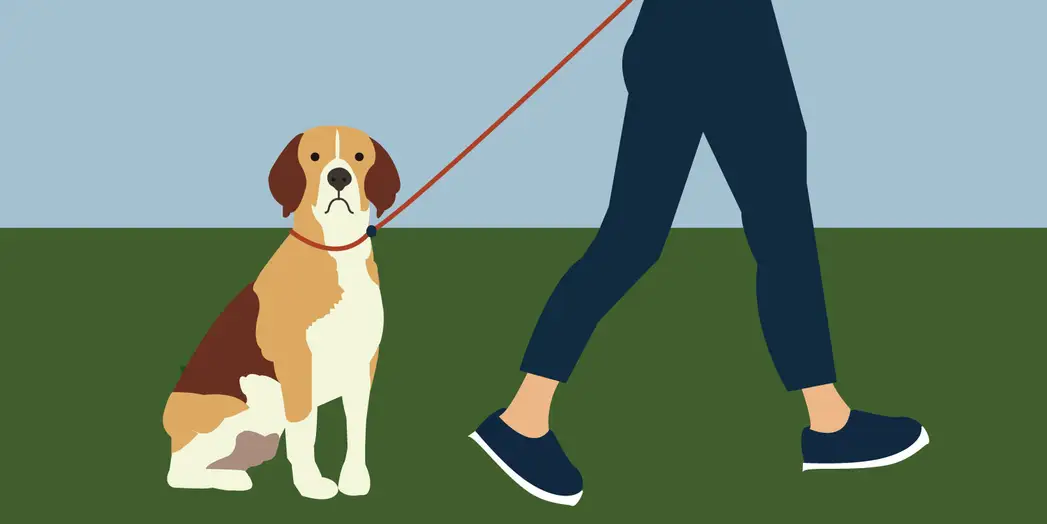
2. Consider a light-based alarm clock
Light-based alarm clocks (often called sunrise alarms) mimic how natural light wakes you up as the sun rises. With a standard sound-based alarm clock, the sudden noise of the alarm jolts you awake, which can be a pretty unwelcome start to the day.
Light-based alarms use a more gradual approach: as your wakeup time approaches, this type of alarm clock slowly lights up your room, starting with a low light level and gradually increasing in brightness.
Some scientific studies have looked at light-based wakeup systems, but so far the evidence isn’t clear about how effective they are.12 13
3. Limit your light exposure in the evening
Just as you want to get as much exposure to natural light during the daylight hours, you also want to limit how much light you’re exposing yourself to in the run up to bedtime.
If possible, in the evening keep lighting low and try not to spend too much time looking at back-lit screens like tablets, smartphones and TVs. Your melatonin levels should be naturally increasing in the evening and these screens can interfere with this rise.
4. Stick to a routine
Sleep loves routine, so aim to wake up at the same time each day and go to bed at the same time, regardless of whether it’s a workday or not. Following the same schedule in summer and winter can help keep your sleep on track.
It’s also a great idea to have a wind-down routine that follows the same basic steps each evening. When you do the same tasks each evening before sleep (for example, take a bath, read a book, go to bed) then your brain builds an association between these activities and sleep.
It doesn’t matter how complex or simple your routine is, the key is to be consistent. Do whatever activities help you to relax and unwind before sleep. Stick to the routine and in no time at all, you should start feeling sleepy when you go to bed.
5. Consider a vitamin D supplement
During the cold, dark days of winter, you get less exposure to sunlight. This, coupled with the fact that many of our diets aren’t perfectly balanced, means that you may get lower levels of vitamin D than you require.
Why is this important for sleep? It’s been shown that deficiency of vitamin D is associated with poor sleep, shorter sleep duration, sleep disorders and night-time wake ups, in both adults and children.14
To produce vitamin D, the body needs sunlight. On dark, cloudy days in winter we don’t get sufficient exposure to sunlight to produce the levels we need. During the winter months it may be beneficial to eat more of the following vitamin D rich foods:
- oily fish (salmon, sardines, herring and mackerel)
- red meat
- egg yolks
- fortified foods (some fat spreads and breakfast cereals).
Alternatively, you could look for a good quality food supplement containing vitamin D.
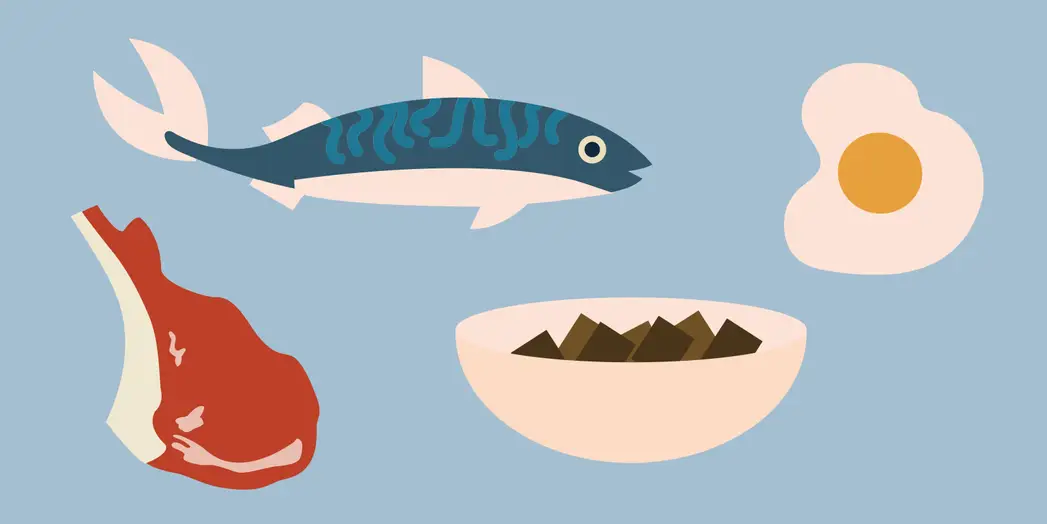
6. Exercise in the morning
If you want to boost your mood and get yourself going in the morning on days when the sun rises late, then you could try exercising when you wake. The benefits of exercise go beyond just keeping you healthy ― regular exercise can improve mood and help you sleep.
Exercise physically tires your body, making it easier to fall asleep quickly once you’re in bed and helping you to stay asleep during the night. If you’re exercising outside, especially in the morning, it can also help to keep your body clock regulated too.
Exercise can help to improve sleep in more indirect ways too, through its effects on mood. Exercising can help you to shake off stress and aerobic exercise has been proven to reduce anxiety and depression.15
As sleep and mental health go hand-in-hand, the improvements to mood that you’ll likely experience with exercise can also help you find it easier to sleep better too.
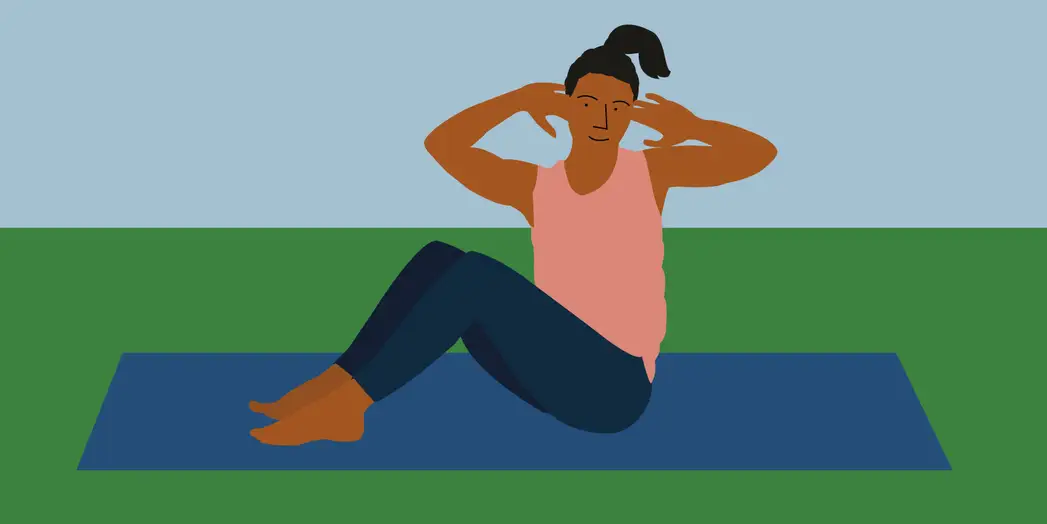
7. Prioritise your sleep
Dark mornings are hard, we get it. But it’s even harder to get yourself out of bed on a wintery morning when you’ve not had enough sleep.
There’s no magic number for how long you need to sleep for, it depends on you and your lifestyle. If you’re waking up with enough energy to get through the day, then you’re likely getting enough sleep.
If you’re waking up unrefreshed and tired, then it’s worth considering if you’re giving yourself enough time to sleep each night. Getting adequate sleep should make it slightly easier for you to wake up and feel motivated on dark mornings.
We can help if dark mornings are affecting your sleep
If you’ve tried all of the above tips and advice but you’re still not getting the sleep you need, then it’s worth considering whether you could have a sleep disorder. Dark mornings will feel so much worse if you’re seeing them through a haze of poor sleep.
Our digital sleep clinic offers a range of services tailored to your specific needs, so we can help you to get back to sleeping well night after night, season after season. At Sleepstation, we use Cognitive Behavioural Therapy for insomnia (CBTi) to help you to improve your sleep.
Our CBTi course uses several well-established techniques to help improve sleep including:
- sleep restriction
- thought blocking
- encouraging good sleep hygiene.
These are introduced over a number of weeks in our online course, which means you can improve your sleep from the comfort of your own home and at your own pace.
So if you’re looking to improve your sleep, why not take the first step today with our sleep quiz. Answer a few short questions about your sleep and in no time at all we can advise you on how best to improve your sleep.
Summary
- It can be hard to motivate yourself to get up on dark mornings because we’re naturally wired to sleep when it’s dark.
- For some people, the darker months can trigger a type of depression known as seasonal affective disorder (SAD)
- Sleep disruption is a common symptom of SAD, and around a quarter of people with SAD also experience insomnia.
- Getting exposure to sunlight or artificial light as soon as possible in the morning can help to wake your brain and body during autumn and winter.
- There’s a host of positive sleep practices that you can adopt to help you to sleep better and cope with dark mornings.
Are dark mornings affecting your sleep?
When you’re sleeping badly, getting up in the dark can be really difficult. But you don’t have to battle on until the lighter days reappear. Our expert team can help you identify the cause of your sleep problem and give you the lifelong skills to keep your sleep on track, whatever the season.
Join the thousands of people who’ve already achieved better sleep through our Sleep Transformation Programme.
- Proven to be more effective than sleeping pills
- Direct access to our expert sleep team
- Clinically validated and accredited by the NHS
- Tailored sleep improvement plan
References
- Clow A, Hucklebridge F, Thorn L. The cortisol awakening response in context. Int Rev Neurobiol 2010; 93: 153–175. ↩︎
- Ennis GE, Moffat SD, Hertzog C. The cortisol awakening response and cognition across the adult lifespan. Brain Cogn. 2016;105:66–77. ↩︎
- Seasonal affective disorder. National Institute of Mental Health (NIMH). Available here. (accessed 27 Sep2022). ↩︎
- Beating the winter blues [Internet]. Nhsinform.scot. 2022 [cited 30 September 2022]. Available here. ↩︎
- Thorn L, Evans P, Cannon A, Hucklebridge F, Clow A. Seasonal differences in the diurnal pattern of cortisol secretion in healthy participants and those with self-assessed seasonal affective disorder. Psychoneuroendocrinology 2011; 36: 816–823. ↩︎
- Fisher PM, Madsen MK, Mc Mahon B, Holst KK, Andersen SB, Laursen HR, et al. Three-week bright-light intervention has dose-related effects on threat-related corticolimbic reactivity and functional coupling. Biol Psychiatry. 2014;76(4):332–9. ↩︎
- Praschak-Rieder N, Willeit M, Wilson AA, Houle S, Meyer JH. Seasonal variation in human brain serotonin transporter binding. Arch Gen Psychiatry. 2008;65(9):1072–8. ↩︎
- Wescott DL, Soehner AM, Roecklein KA. Sleep in seasonal affective disorder. Curr Opin Psychol 2020; 34: 7–11. ↩︎
- Melrose S. Seasonal affective disorder: An overview of assessment and treatment approaches. Depress Res Treat 2015; 2015: 178564. ↩︎
- Figueiro MG, Steverson B, Heerwagen J, Kampschroer K, Hunter CM, Gonzales K et al. The impact of daytime light exposures on sleep and mood in office workers. Sleep Health 2017; 3: 204–215. ↩︎
- Choi K, Shin C, Kim T, Chung HJ, Suk H-J. Awakening effects of blue-enriched morning light exposure on university students’ physiological and subjective responses. Sci Rep 2019; 9: 345. ↩︎
- Leppämäki S, Meesters Y, Haukka J, Lönnqvist J, Partonen T. Effect of simulated dawn on quality of sleep–a community-based trial. BMC Psychiatry 2003; 3: 14. ↩︎
- Giménez MC, Hessels M, van de Werken M, de Vries B, Beersma DGM, Gordijn MCM. Effects of artificial dawn on subjective ratings of sleep inertia and dim light melatonin onset. Chronobiol Int 2010; 27: 1219–1241. ↩︎
- Abboud M. Vitamin D supplementation and sleep: A systematic review and meta-analysis of intervention studies. Nutrients 2022; 14: 1076. ↩︎
- Sharma A, Madaan V, Petty FD. Exercise for mental health. Prim Care Companion J Clin Psychiatry 2006; 8: 106. ↩︎
